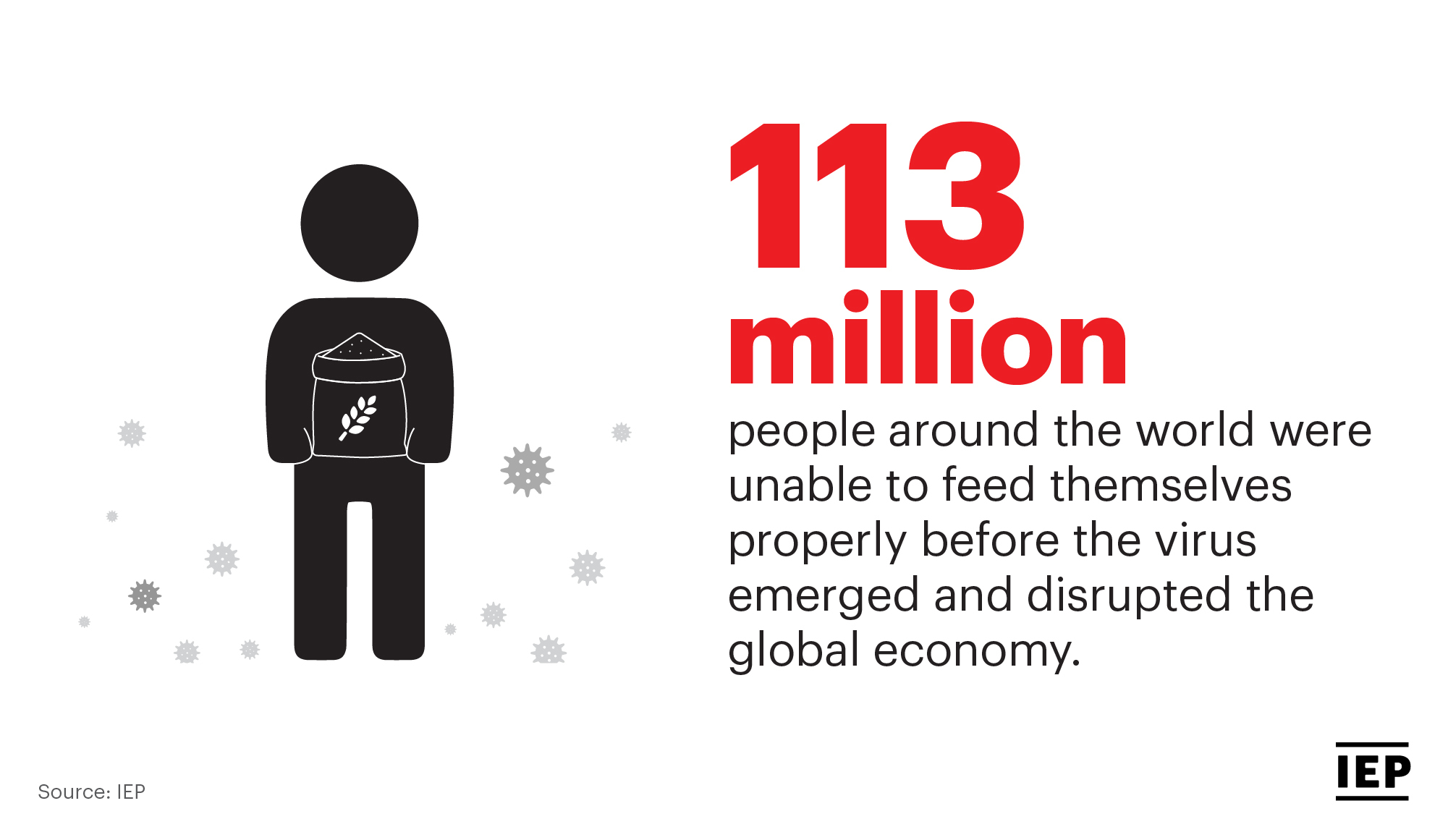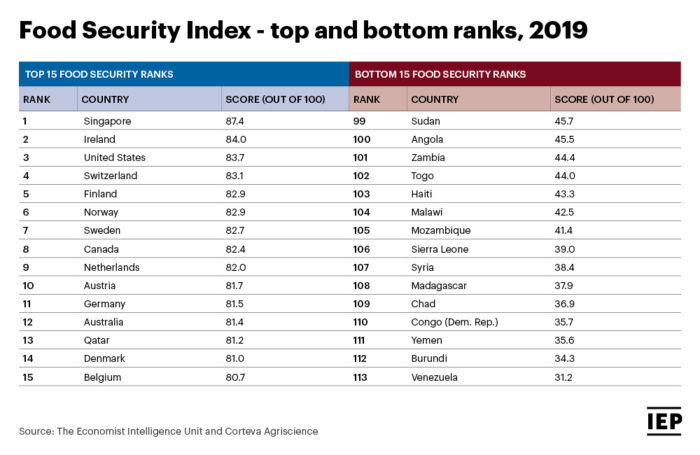According to the 2020 Global Peace Index, 113 million people in the world experienced food shortage before COVID-19 disrupted the global economy.
The COVID-19 pandemic will increase the likelihood of famine for 113 million people around the world.
According to the 2020 Global Peace Index, these 113 million people around the world were unable to feed themselves properly before the virus emerged and disrupted the global economy.

Now the threat of famine has been added to the threat of infection, a problem deemed ‘a crisis within a crisis’ by the United Nation’s Food and Agriculture Organisation (FAO).
The pandemic also increases the probability of famine through the lockdowns and travel bans, which prevent aid from reaching vulnerable communities suffering from food insecurity.
Food deprivation is most concerning in the African Sahel region, Central African Republic, Democratic Republic of the Congo, South Sudan, Afghanistan, Haiti, Syria and Myanmar.

The Food Security Index ranks countries according to the availability, affordability and quality of food accessible to the population. It shows that many countries in Africa and Latin America were already facing food insecurity before COVID-19.